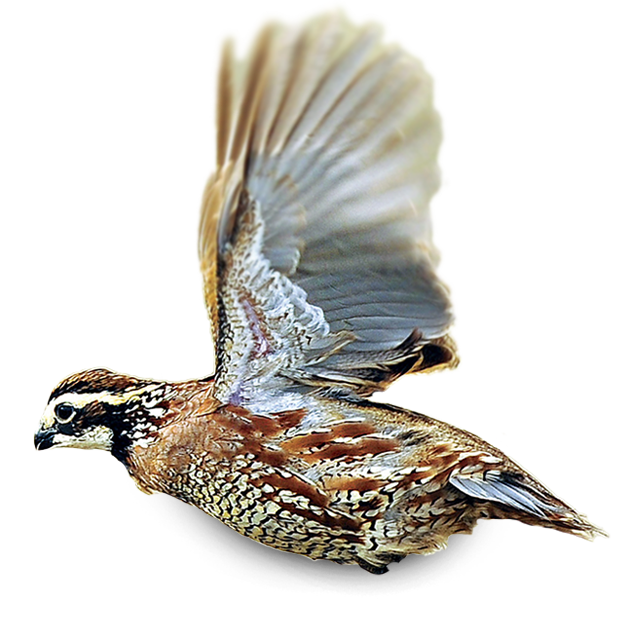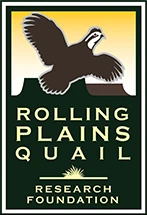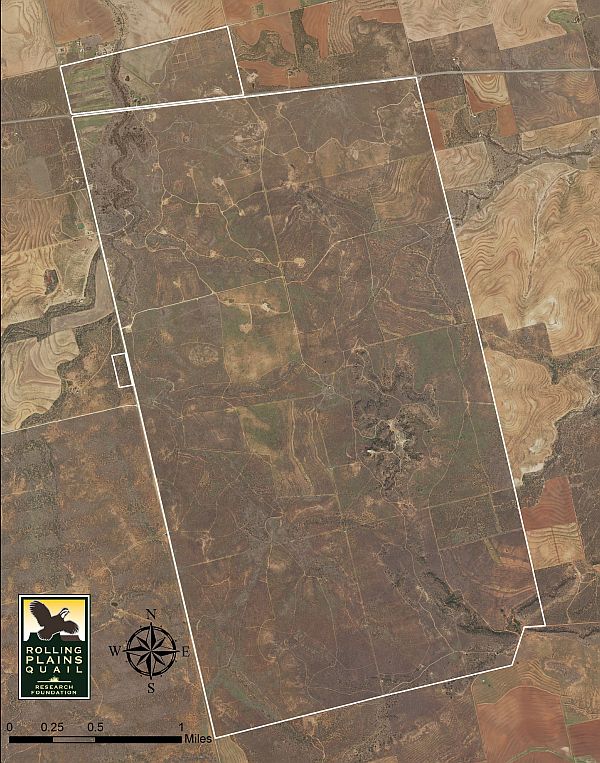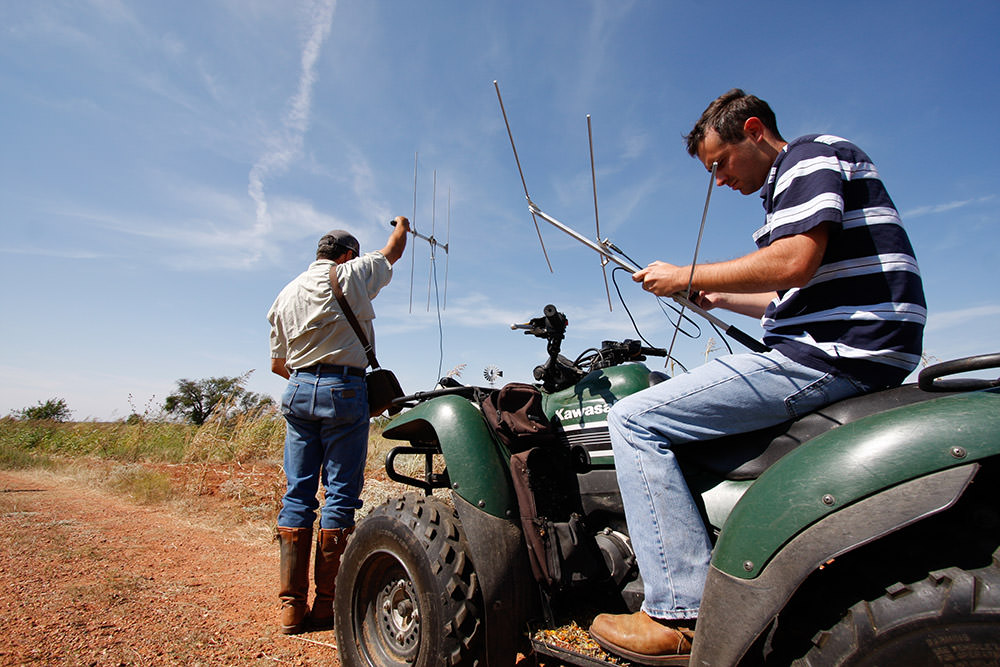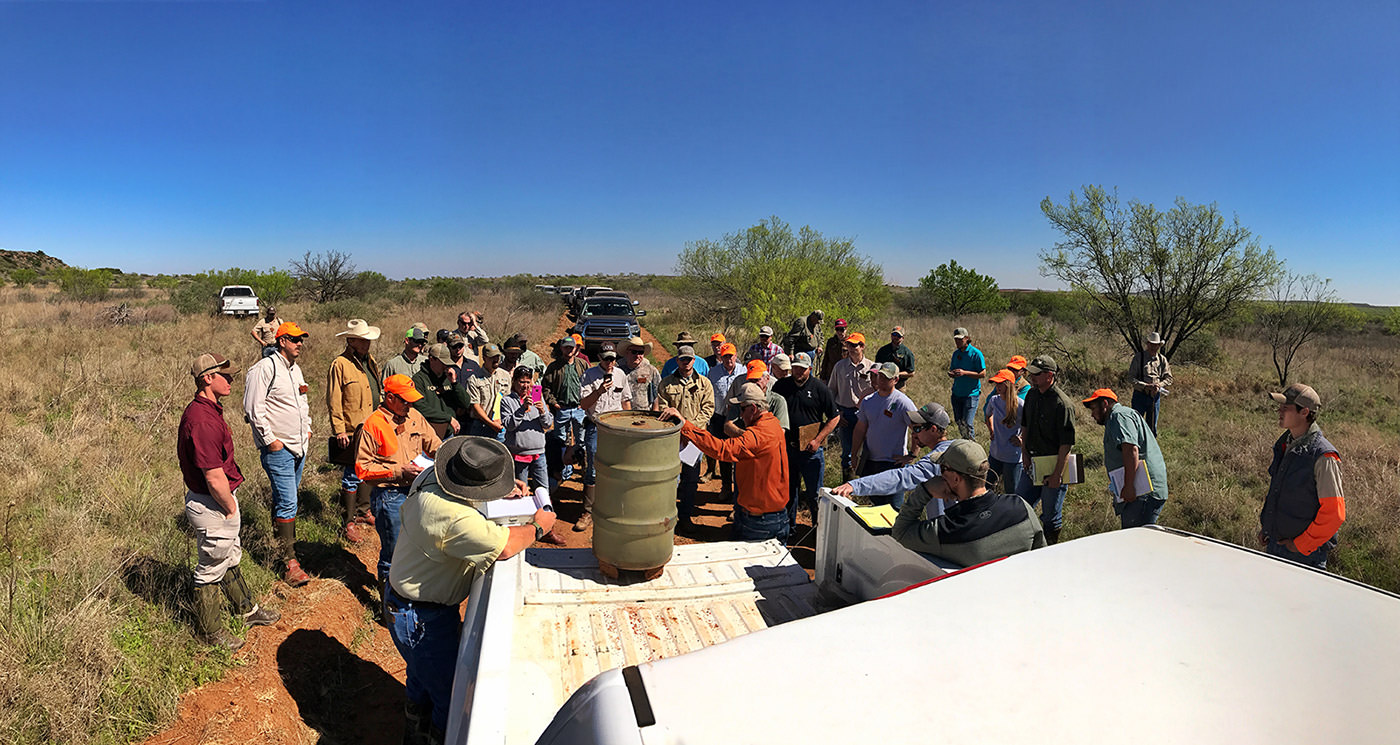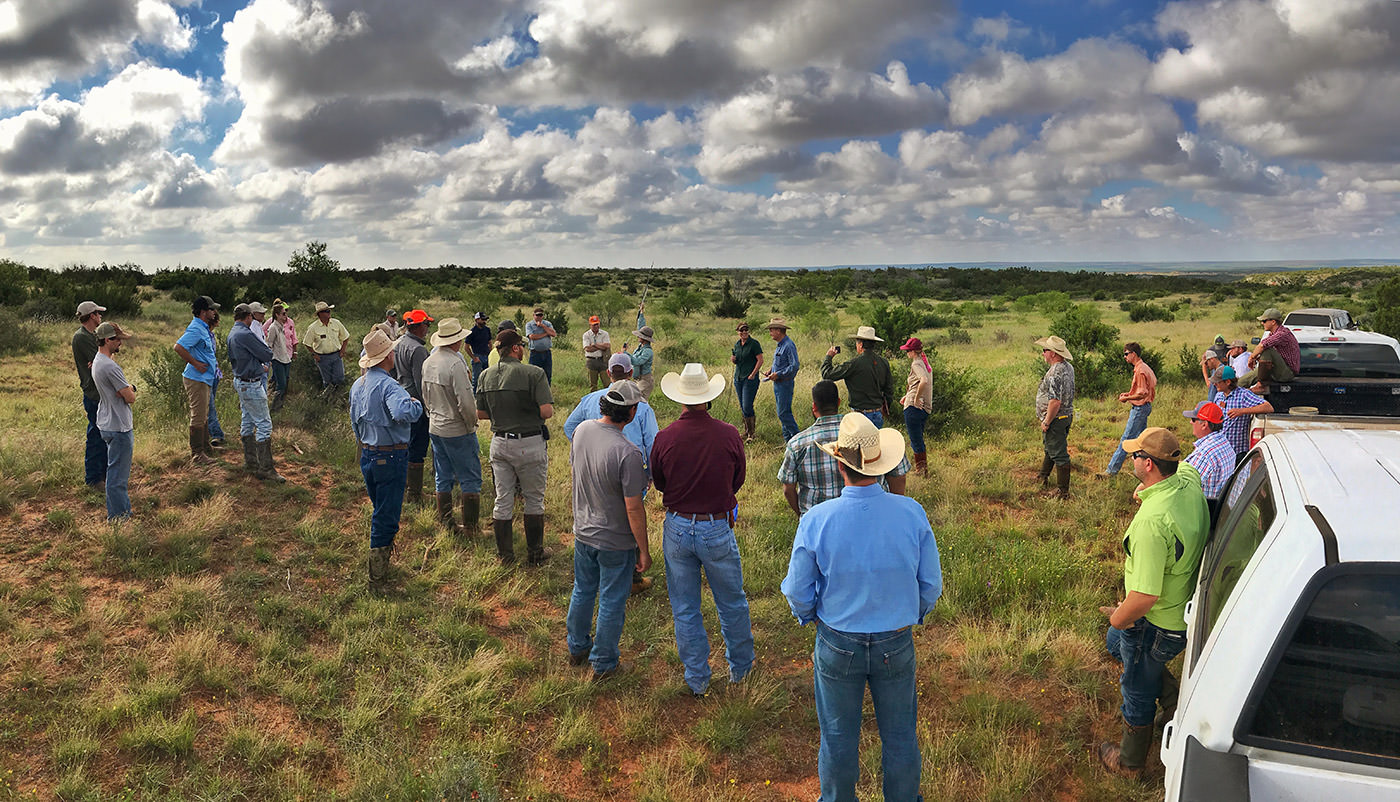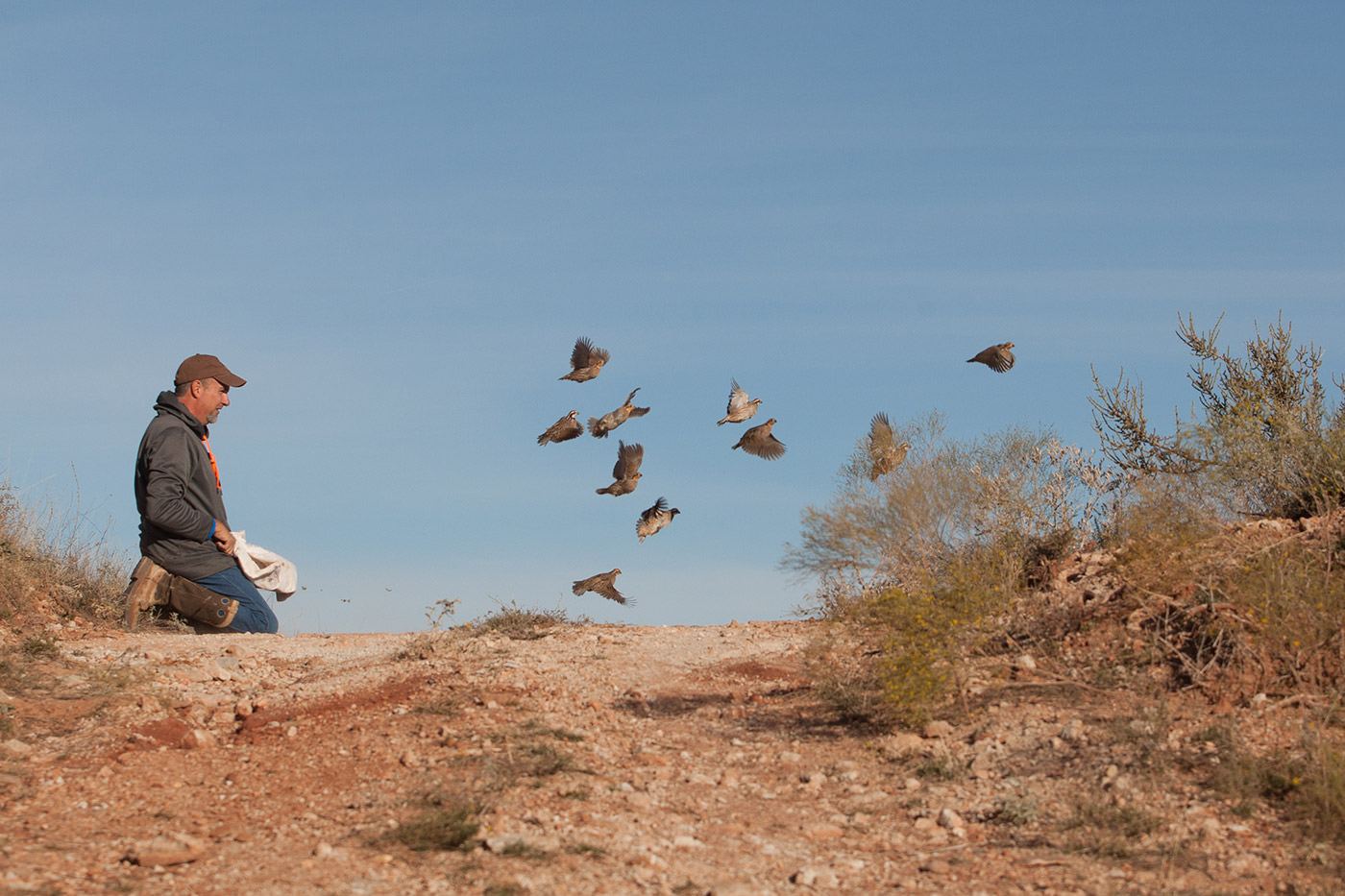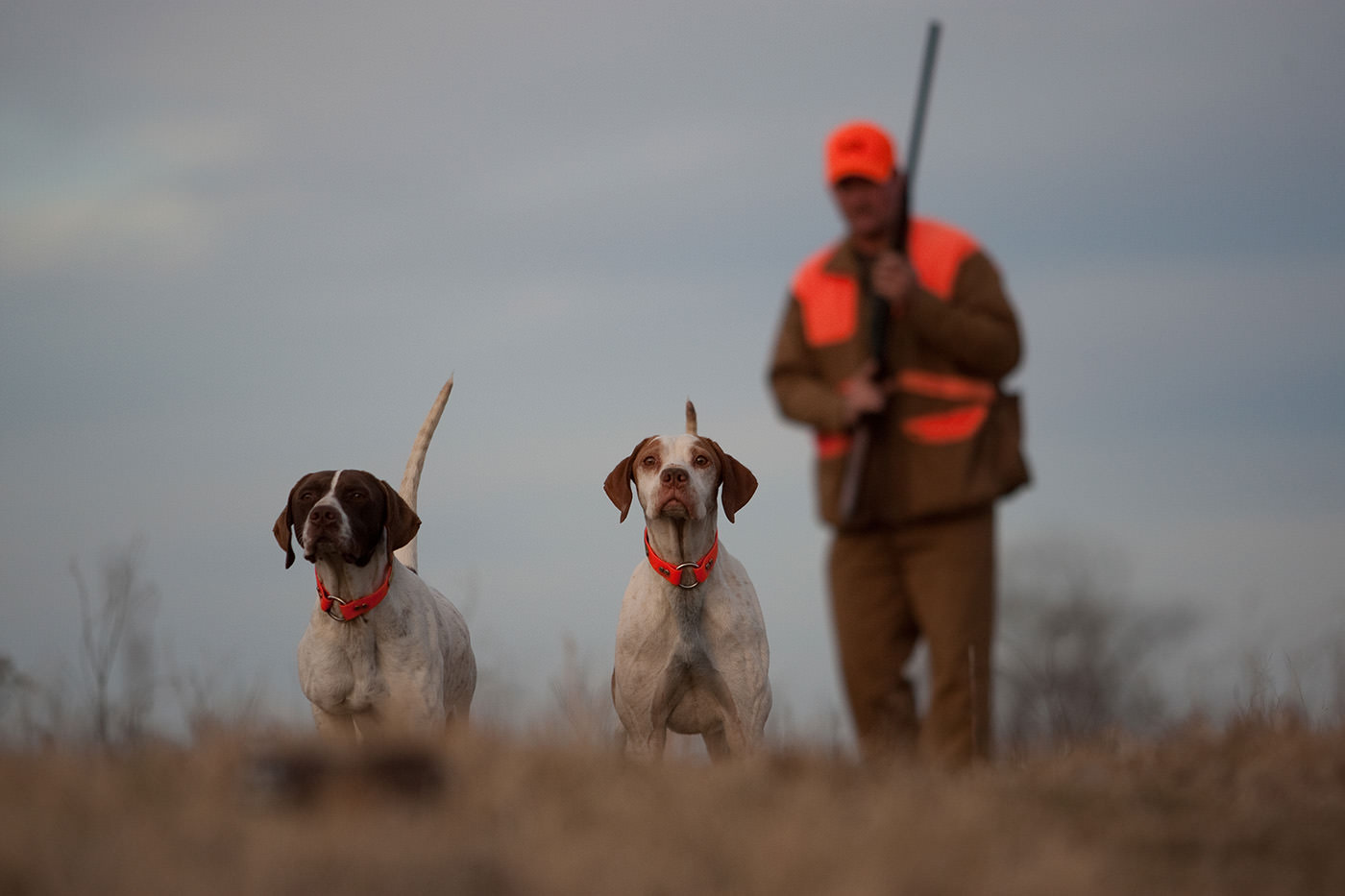
Medicated Feed Project
The Medicated Feed Project evaluates QuailGuard as a tool to reduce internal parasites in wild quail, showing early promise in improving quail health and survival. This large-scale effort also supports a new statewide parasite database and advances practical, science-based strategies for sustaining quail populations.

GPS vs VHF Study
RPQRF evaluates GPS and VHF transmitters—enhanced by drone technology—to identify the most efficient, accurate, and safe tools for tracking quail movement. This dual-technology approach improves data collection, reduces labor, and guides best practices for wildlife monitoring across diverse habitats.

Autonomous Recording Unit Study
RPQRF tests Autonomous Recording Units (ARUs) as a scalable, cost-effective tool for monitoring quail populations through vocalization data across large landscapes. Early results show ARUs reliably detect calls and reduce labor demands, advancing consistent, science-based monitoring and habitat management strategies.

General RPQRR Research and Data
The Rolling Plains Quail Research Ranch (RPQRR) houses one of Texas’ largest quail datasets, tracking over 20,000 banded and 3,500 radio-tagged birds to study survival, nesting, and predator-prey dynamics. Serving as both a research hub and training ground, RPQRR supports conservation efforts with long-term data that inform habitat management and advance quail ecology across the region.
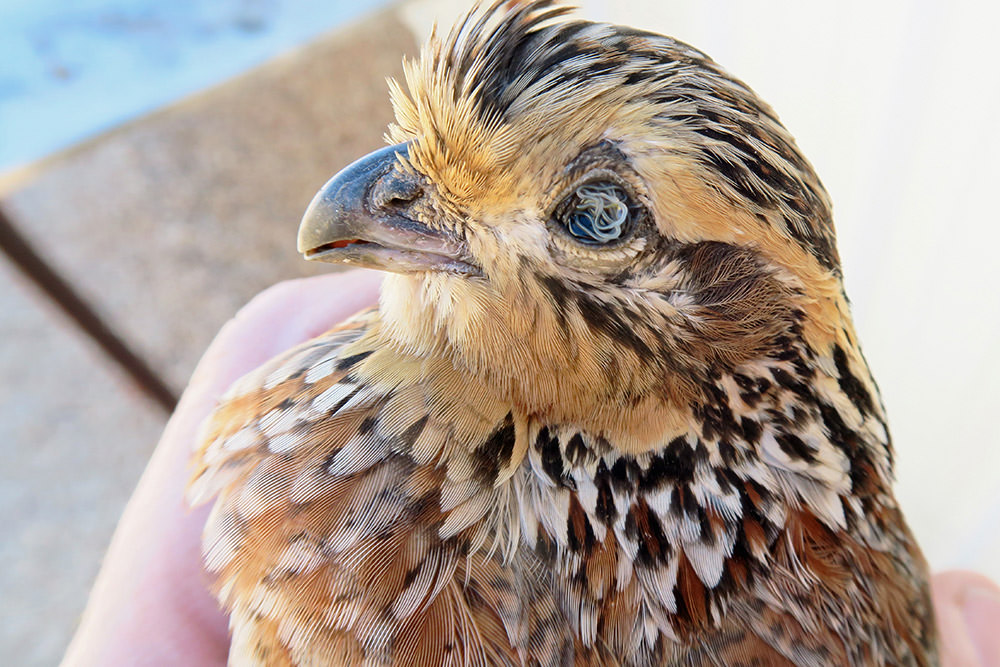
Operation Idiopathic Decline
Following a sudden plummet of quail populations in the Rolling Plains in the fall of 2010, RPQRF urgently assembled a team ten scientists from four universities to investigate the drop in quail numbers. The science team spread out over 35 counties in West Texas and Oklahoma.

Operation Transfusion
Launched in 2013, this research initiative explores translocation as a method for restoring wild quail populations in areas where they’ve long disappeared. By relocating quail from thriving populations to suitable but depleted habitats, the Foundation aims to refine and expand this promising conservation strategy across Texas.

The Bobwhite Genome Project
In an effort to uncover why some quail populations thrive while others decline, the Foundation turned to genetic research. By sequencing the complete bobwhite quail genome, scientists are exploring how genetic traits may influence disease resistance and adaptability to environmental stressors.
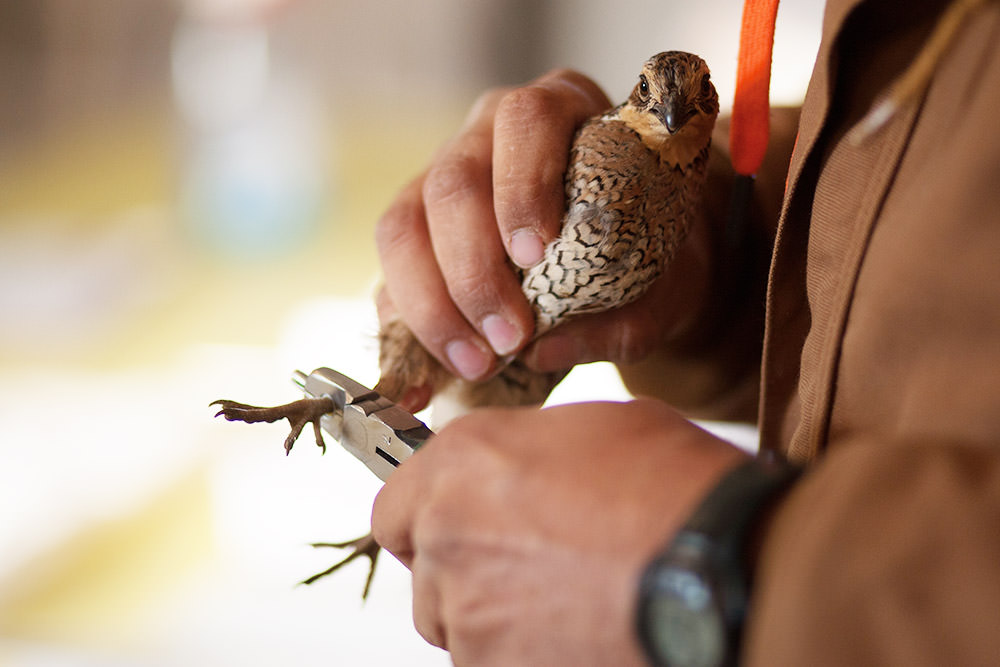
Two Decades of Research Ranch Projects
Since the founding of the quail research ranch in 2007, our journey has truly been an odyssey—both in adventure and discovery. Marked by dramatic population swings and unexpected challenges, this voyage reflects the unpredictable nature of bobwhite quail and the resilience required to study and conserve them.
Quail & Parasite
Submission Forms
